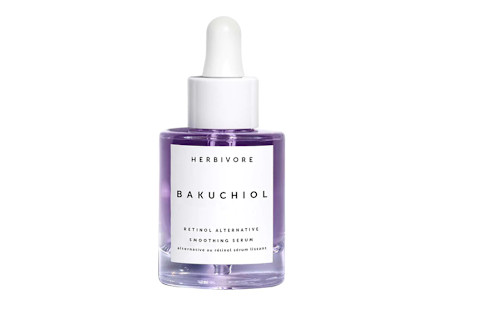Wary Of Potent Retinoids? Try These Gentler Forms First & Thank Us Later

Quick refresher: Retinoid is an umbrella term that technically includes both over-the-counter (OTC) retinol products and prescription-strength tropicals. That being said, most people use the term "retinoid" when referring to prescription-grade Retin-A creams, like tretinoin or Tazorac. We know, it can be confusing.
Those that are accessible via prescription are way stronger and more potent. While this can come with more dramatic results, especially for those that are acne-prone, they can be irritating for some people with sensitive skin.
If this sounds like you, or you just want to ease into retinol slowly, you may consider opting for one of these gentle alternatives first.
What are copper peptides?
First up, we have copper peptides. These peptides have been referred to as "nature's retinol" in casual conversation because of their healthy aging properties. See, according to research, copper peptides have been shown to reduce inflammation and enhance skin regeneration.
As this 2018 study1 states, copper peptides have been used in countless creams and serums formulated for aging skin without adverse side effects.
What's more, these peptides help support collagen production and reduce collagen breakdown1, leveling out the tipping scale that causes skin aging.
What is retinaldehyde?
Retinaldehyde is another form of retinol that falls just below those potent prescription products mentioned earlier. This is because "[retinaldehyde] only requires one step to be converted to retinoic acid in order for it to have its effect on the skin," board-certified dermatologist Marisa Garshick, M.D., FAAD, once told mbg.
This makes retinaldehyde a superstar pick for encouraging healthy skin aging and even treating acne2, especially when paired with a chemical exfoliant like glycolic or mandelic acid in an evening skin care routine (though never on the same night!).
Summary
Shop these products:
The takeaway
Whether you're just starting to explore retinol (in any form) or you tend to have sensitive skin, opting for gentler ingredients like copper peptides or retinaldehyde is a great place to start. Just remember not to use these ingredients on the same night as exfoliants to avoid irritation. Not sure where to plug in your new treatment? Here's the 101 on how to create a nighttime skin care routine.



